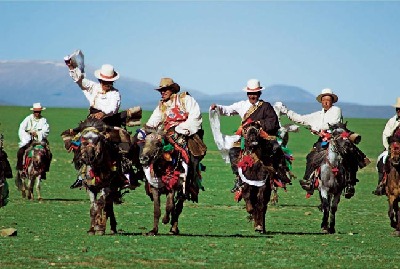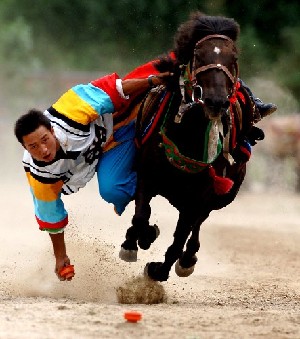Tibet's traditional sports are the product of the region's particular natural environment and customs. Years ago, sporting events and entertainments, as well as some competitions and performances, were connected with the seasons and festivals of the Tibetan calendar. Today some of these traditional sports have been standardized and included in modem competitive sports. Principal traditional sports include the following:
1. Horseracing

Horse races are held every year in the northern grasslands and in some other farming and herding areas. The ordinarily dressed participants, mainly young adults, race bareback over a ten-kilometer course.
2. Horsemanship

Skills on horseback are celebrated here, such as mounted marksmanship or snatching a hada silk ceremonial scarf from the ground at full gallop. The participants dress in fancy splendid attire and ride gaily decorated horses festooned with copper bells.
3. Polo
This ancient sport, wherein riders maneuver a ball around a course with the aid of a mallet, can trace its history to at least the early 8th century when Emperor Zhongzong of the Tang Dynasty (618-907) commanded his palace polo team to join in a competition with a squad accompanying Tibetan envoys to Chang'an (today's Xi’an), the Tang capital.
